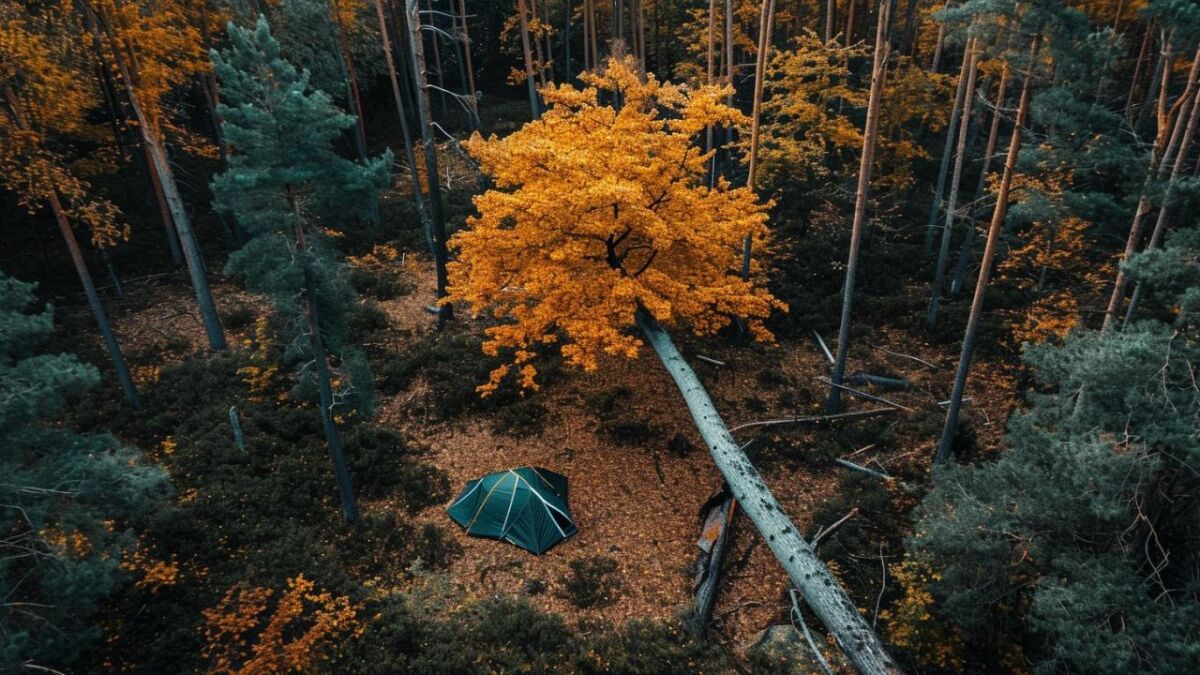
Falling trees - How to recognize and when is it dangerous in the forest?
👉 The key facts from this guide
- Pay attention to snow load, rain, storms, fog, and freezing rain in the forest, as these weather conditions can make trees dangerous.
- Consider specific tree species, for example, coniferous trees are more susceptible to storm damage, and deciduous trees with leaves are susceptible to snow load.
- Diseases and pests, such as the horse chestnut leaf miner or ash dieback, weaken trees and increase the risk of falling.
- Safety tips for the forest: use current weather apps, get informed, and follow marked trails, especially in case of storm warnings, stay in safe areas or avoid the forest.
- Handle dead trees with caution, as they can suddenly fall like "silent time bombs".
Imagine yourself relaxed, walking in the forest, breathing in the fresh air, listening to the birdsong.
But suddenly, there is a threatening crack above you. Heart palpitations - a tree could topple!
I know the problem. I, too, was in the forest when the sky suddenly turned dark.
But stay calm! I have done my research and now I'm sharing my knowledge.
We will now discuss together how you can recognize when trees become a danger.
And how to safely navigate through the forest.
Weather Capers as Tree Tamer
Let's move on to the most dangerous situations where you should avoid trees.
Obviously, there is a lot of snow, storms, or heavy rain.
Snow load: The silent danger
Snow, often a symbol of silence and peace, also has an unpleasant side.
I have seen for myself how magnificent coniferous trees groaned under the white burden.
And I tell you: Be careful with Douglas firs. Their large needles catch a lot, until suddenly branches break.
Winner over the snow? The deciduous trees without leaves as well as the adapted coniferous trees, such as pine and spruce.
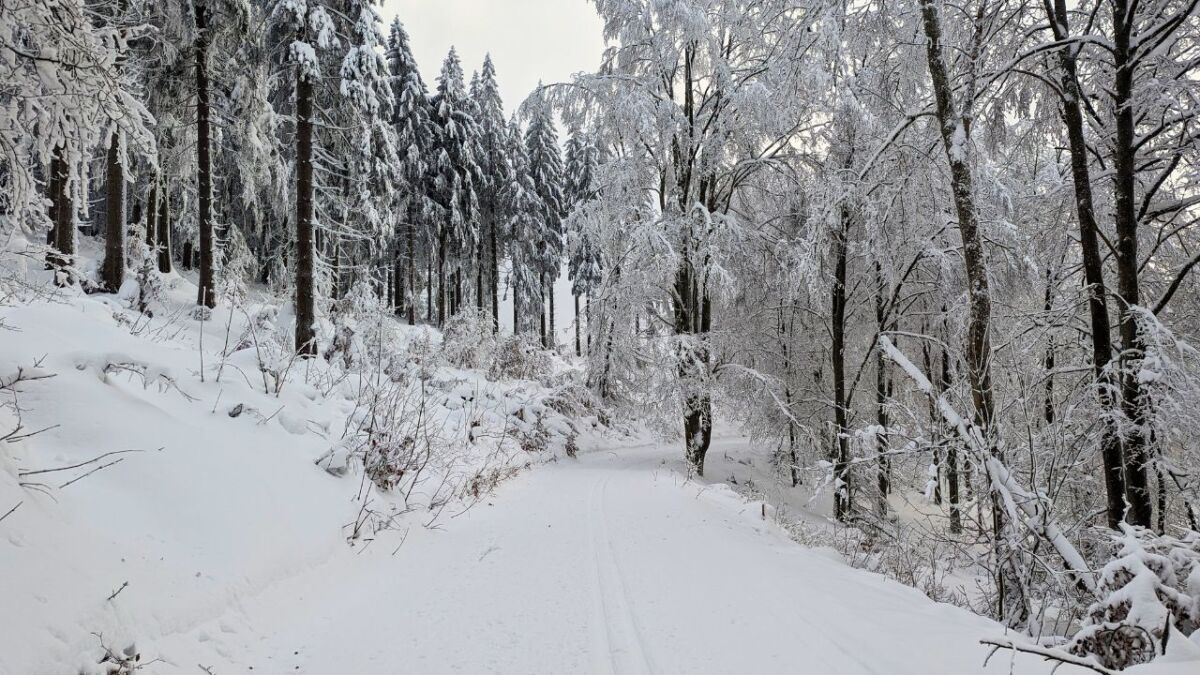
Rain - The Softener
Remember, after heavy rain, the ground - figuratively speaking - turns into pudding.
Imagine how the roots become rootless in the dampness.
I have seen trees toppling over like toothpicks because the wet ground lost their grip. All the more reason to keep an eye on the root area.
This phenomenon occurs especially in forests with compacted and non-intact forest soil because then the rain does not seep well into the groundwater.
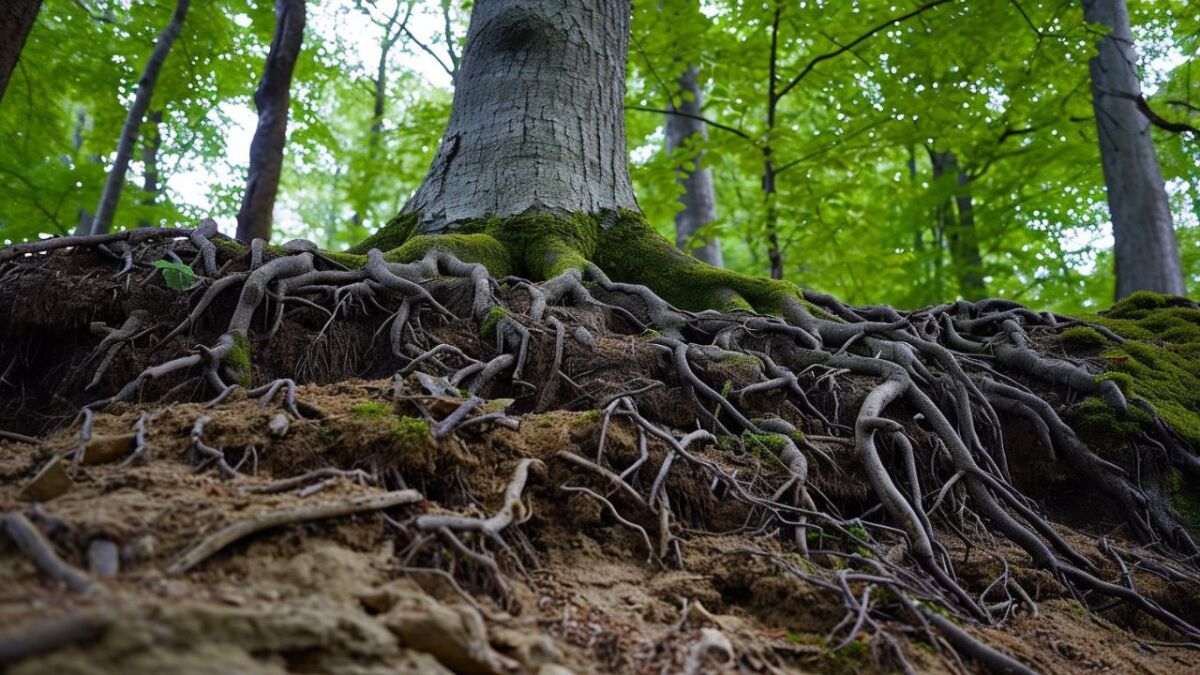
Storms as Masters of the Forest
Storms are the obvious culprits - especially in autumn.
They enjoy pushing fir trees that reach out for the wind with their dense needle forest. I can only advise you: Respect the power of the storm!
More weight on the branches means more broken branches during snow and ice storms.
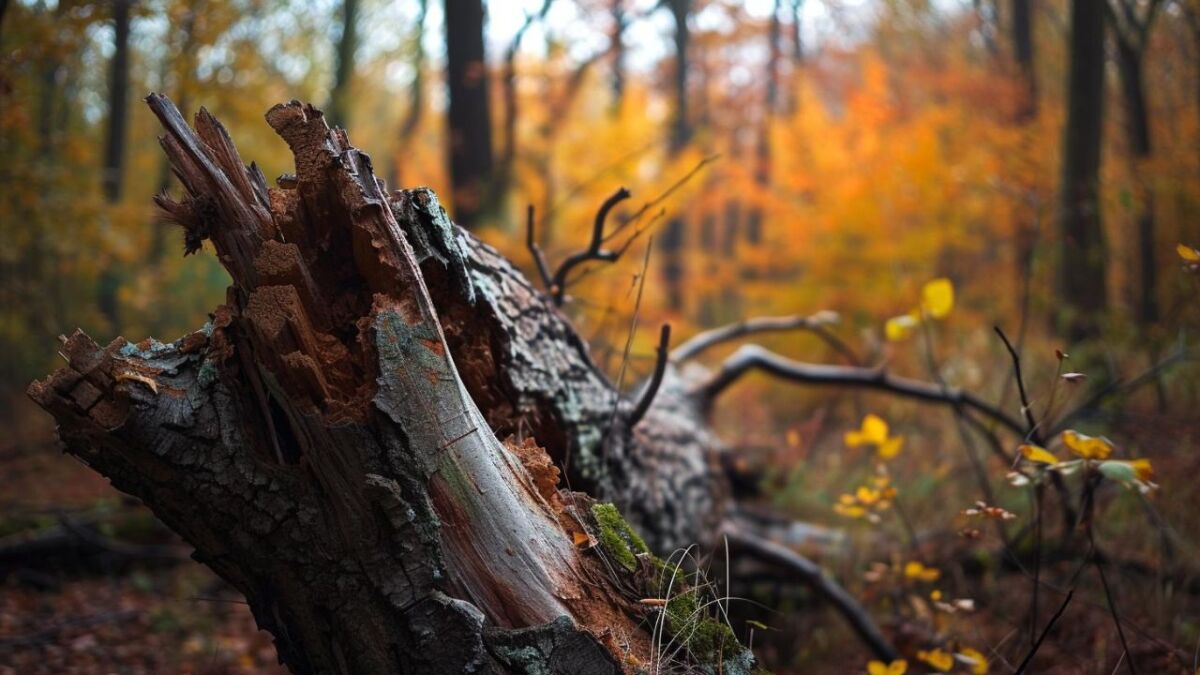
Moist - The Acrobatic Droplet
During fog, branches become water reservoirs. Sounds harmless?
I have observed how moist fog collects on branches and suddenly turns rotten branches into dangerous projectiles.
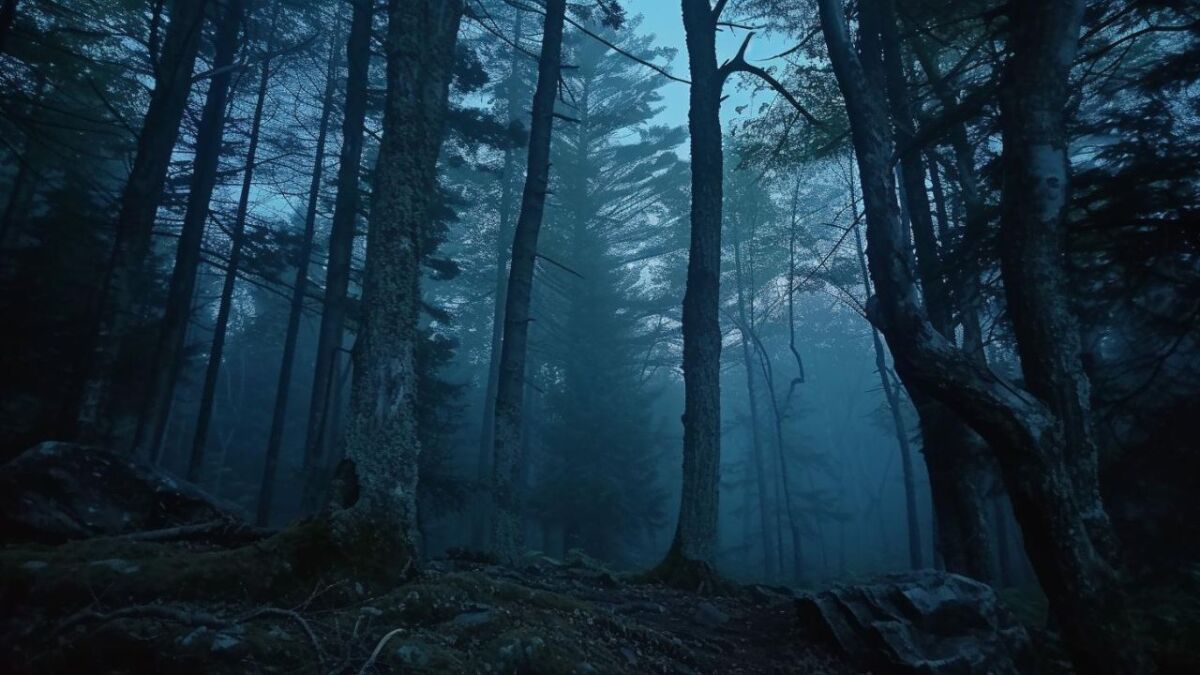
Icy rain - The Invisible Weighter
Icy rain makes nature sparkle, but be careful! This spectacle can turn branches into heavy, breakable burdens. A truly slippery companion that brings surprises.
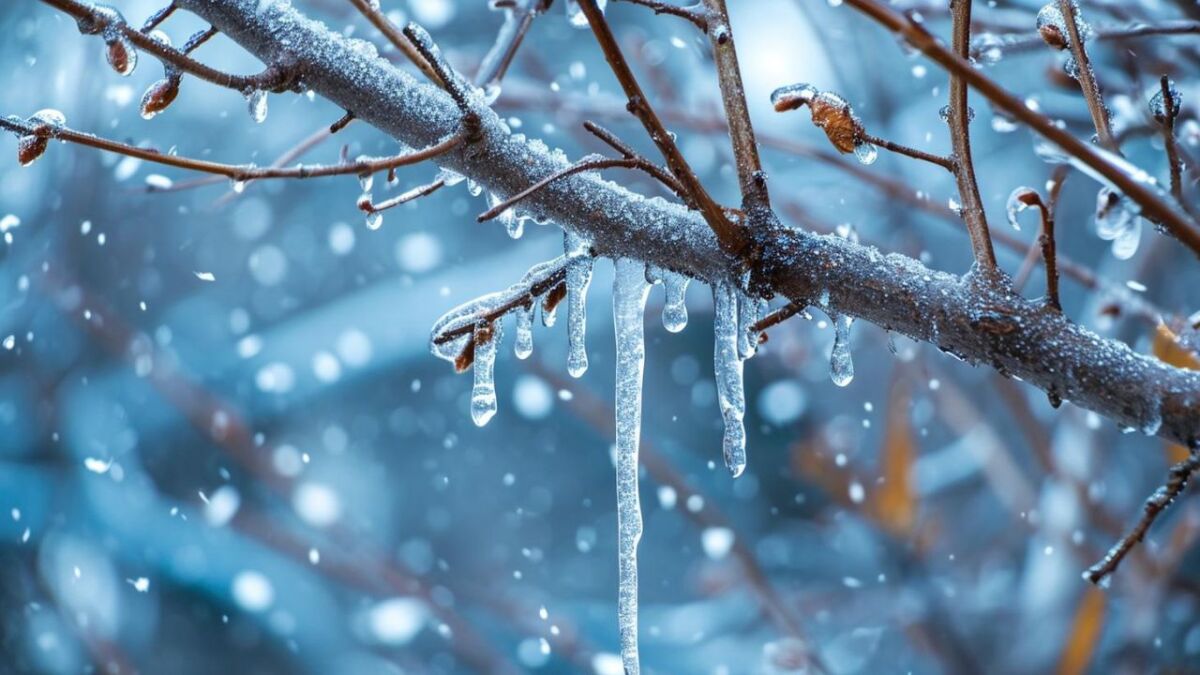
Weather extremes at a glance:
| Weather phenomenon | Description |
|---|---|
| Snow | Douglas firs with uneven growth and large needle mass should be monitored. |
| Rain | Heavy precipitation softens the ground - loss of stability is imminent. |
| Storm | Coniferous trees with a large surface area are particularly vulnerable. Deciduous trees with leaves as well. |
| Fog | Moisture makes rotten branches heavier and more dangerous. |
| Freezing rain | Ice on the branch is a burden on the branch - breakage is imminent. |
If I experience one of these phenomena, I sharpen my senses and use my head to decide whether to continue on my path or give the forest a break.
Further causes why trees can fall
Not only in autumn and winter it is more dangerous in the forest. Even in summer, trees suffer from situations that promote their falling over.
Diseases and pests as causes
Various diseases and pests can significantly weaken trees. For example, the horse chestnut leaf miner moth has almost exclusively affected the horse chestnut tree, causing the trees to lose strength and struggle for survival (lfl.bayern.de).
Recently, the chestnut leaf miner moth has migrated from Southeast Europe. It is highly specialized in its choice of host: so far, it has mainly impacted the white-flowering horse chestnut.
Similarly, a shocking ash tree dieback caused by a tube fungus was recorded in Bavaria. Such diseases and pests can compromise the stability of trees and make them more susceptible to falling (Planet Wissen).
Influence of climate change and urban conditions
The climate change and the increasing sealing and compaction caused by residential and commercial buildings have a negative impact on tree health.
This leads to a struggle for space, in which trees in urban areas come under pressure and can eventually fall over.
The Bavarian State Institute for Viticulture and Horticulture is working on finding resistant urban trees that can survive under these challenging conditions.
Remember: Your safety comes first - always!
Know your risk: Tree species and their pitfalls
The fickle nature of coniferous trees
One thing should be clear to you: Coniferous trees have something to offer. They catch the wind like a sail.
I have witnessed firsthand how their shallow roots give way at the slightest dance with the wind. Windy and prone to tipping - a team you must not underestimate.
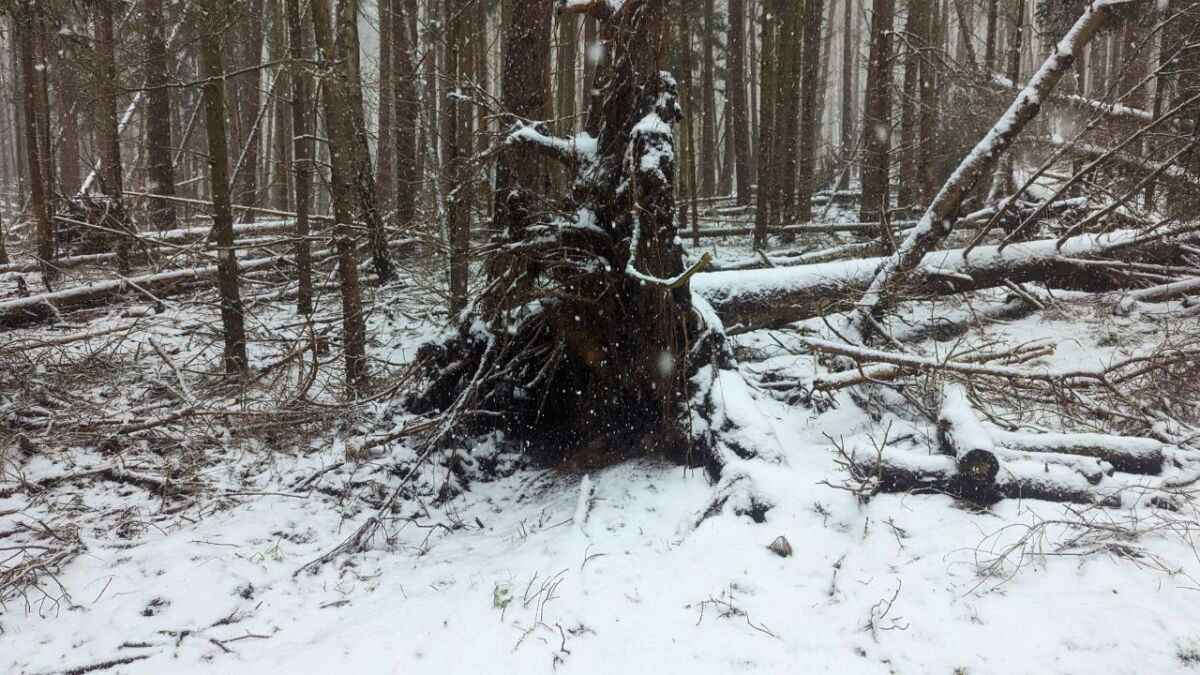
Deciduous Trees - The Powerful Alternative
Imagine a deciduous tree without leaves: less surface area for the wind, more stable roots. But in autumn, with perhaps a full leafy canopy, even they can be swayed. My advice to you: Do not trust blindly, even strong oaks can fall.
Most northern trees lose their leaves. This means less surface area that has to bear the additional weight of ice and snow.
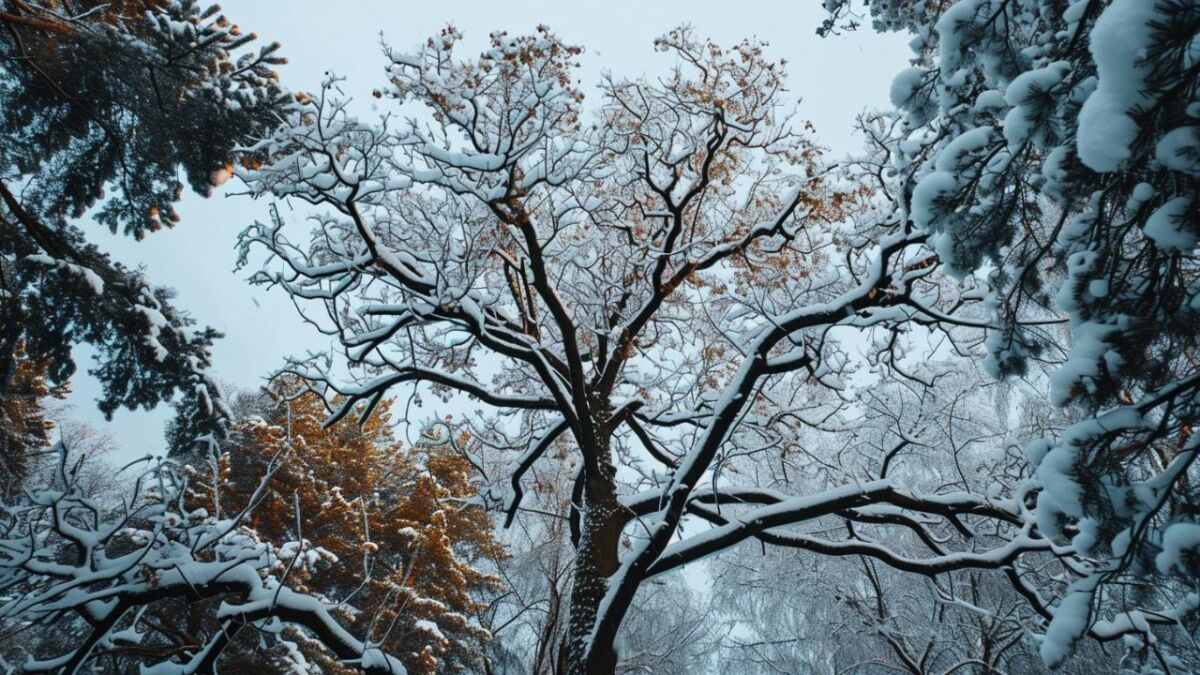
Dead Wood - The Silent Time Bombs
There you stand, in front of a dead tree. Looks harmless, doesn't it?
But right here, in the midst of spruce plantations or dead giants, the danger lurks. You hear it crack loudly - a sign that it's time to keep your distance.
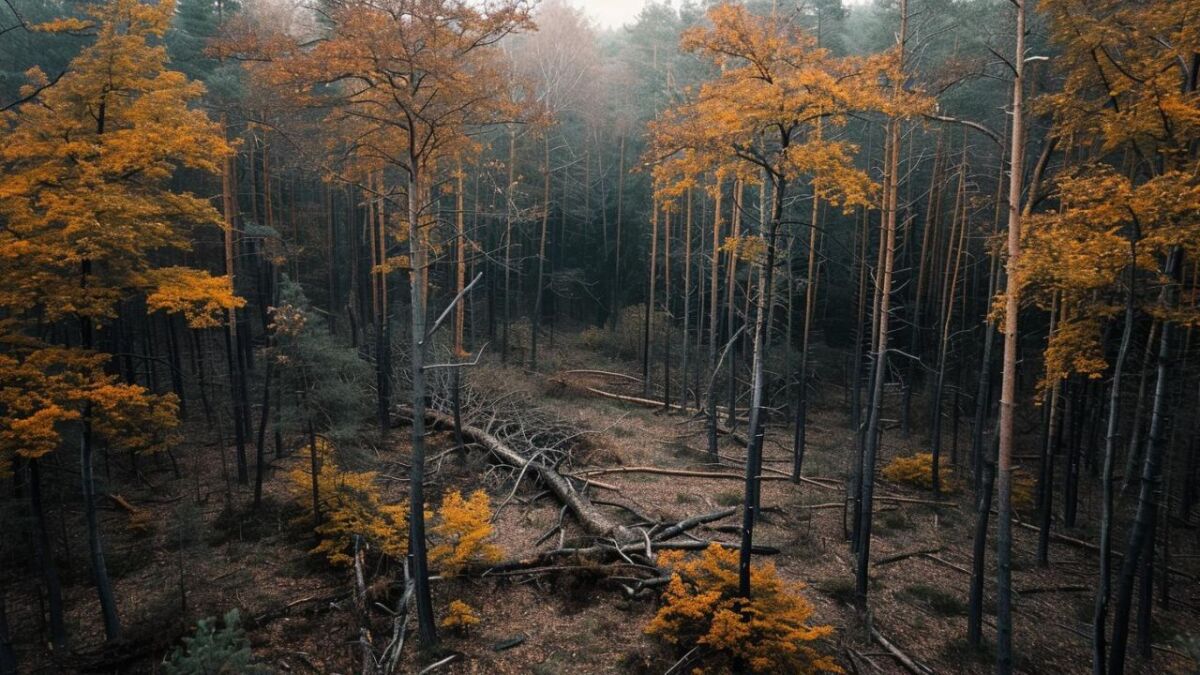
Types of Trees at a Glance in Autumn and Winter:
| Tree species | Description |
|---|---|
| Coniferous trees |
|
| Deciduous trees |
|
| Dead trees |
|
Read also
Dangers in the forest - 15 things you should pay attention to - In the wilderness, there are many dangers: animals, rotten trees, weather changes, or diseases. Learn how to easily avoid these dangers in the forest.
The Forest Whispers: How to Survive Stormy Weather
If you find yourself in the forest and the sky turns into a dark force, the trees groan and the air vibrates with the roar of the wind, then it's time.
I have felt the rumble of the storm often enough and learn something new every time: Take it seriously!
Do not take storm warnings lightly
If storm warnings are in circulation, show respect and stay at home. Never before have I been happier to have gotten a picture of the situation early enough than on the day when hurricane gusts swept through the forest. Rely on reliable sources like the German Weather Service or a weather service in your country.
Acting when the storm surprises
But what if the storm catches you off guard? I tell you: Don't run aimlessly!
Seek shelter in areas with smaller trees or turn around and leave the forest. On a stormy afternoon, this saved my life.
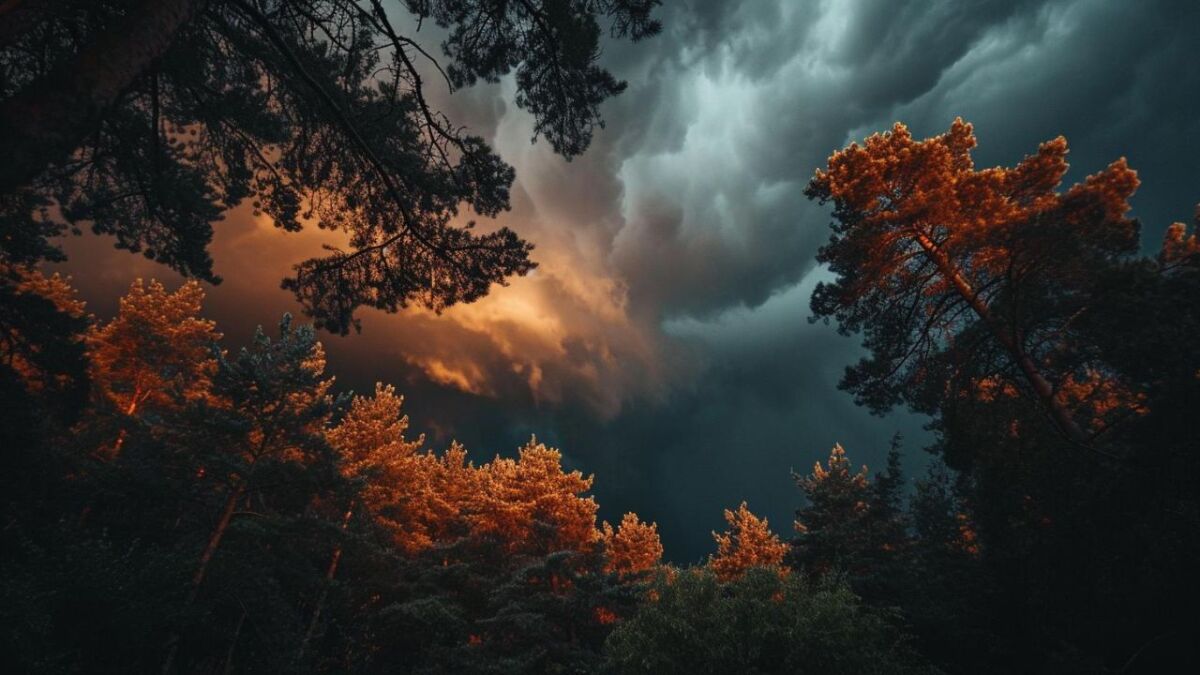
Assessment of the Danger of Knowledge
Weather apps are your digital listeners. Use them to check wind speeds and storm warnings.
A wise decision is based on knowledge. I have learned to trust my instincts while also using modern tools.
Always have a plan B when you go into the woods. Nature is a wild animal, and although I love its beauty, I know that it can also be unpredictable. Be smart, be safe!
The Forest - A Network of Paths and Wisdom
One also needs knowledge - the knowledge of sheltered places and the knowledge of the whims of the forest. I have learned that over many years and countless hikes.
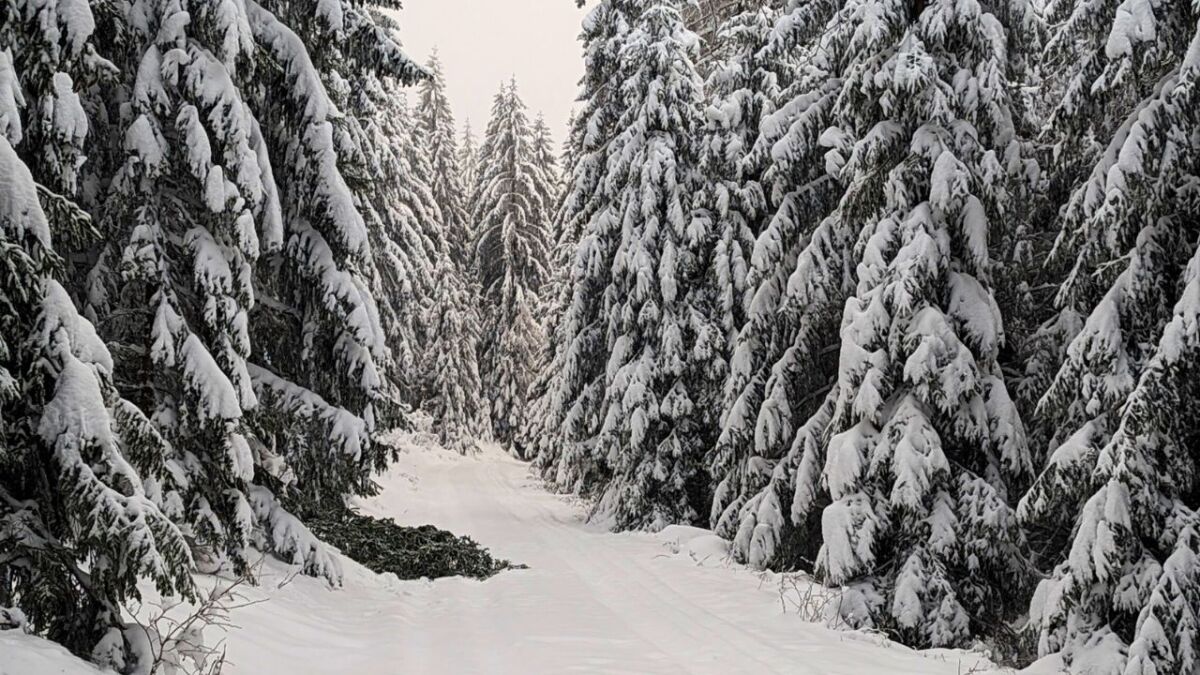
Wind-protected areas - Your oases in the storm
I remember a day when the wind was blowing so strongly that I couldn't understand my own word.
But I knew a spot, a sheltered hollow path, almost like a fortress in the greenery with small trees and bushes. There I stayed until the storm subsided.
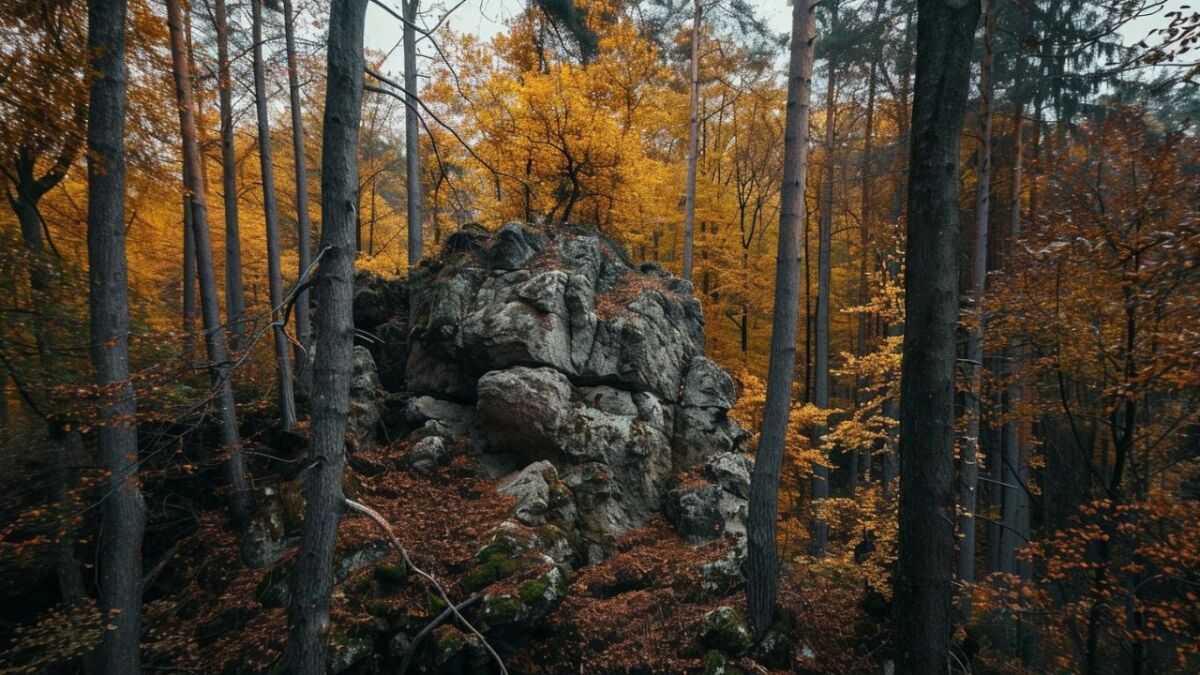
It is worth knowing these places of protection:
- Natural indentations: Smaller depressions in the terrain block the wind.
- Rock outcrops: Provide reliable protection against falling trees and the wind.
- Densely vegetated areas: Here, shrubs and lower branches break the force of the wind.
Unknown Territory - Caution is the Mother of the Porcelain Box
And what if you find yourself in an unfamiliar forest? Here it says: Extra cautious! This can quickly become dangerous, especially in bad weather.
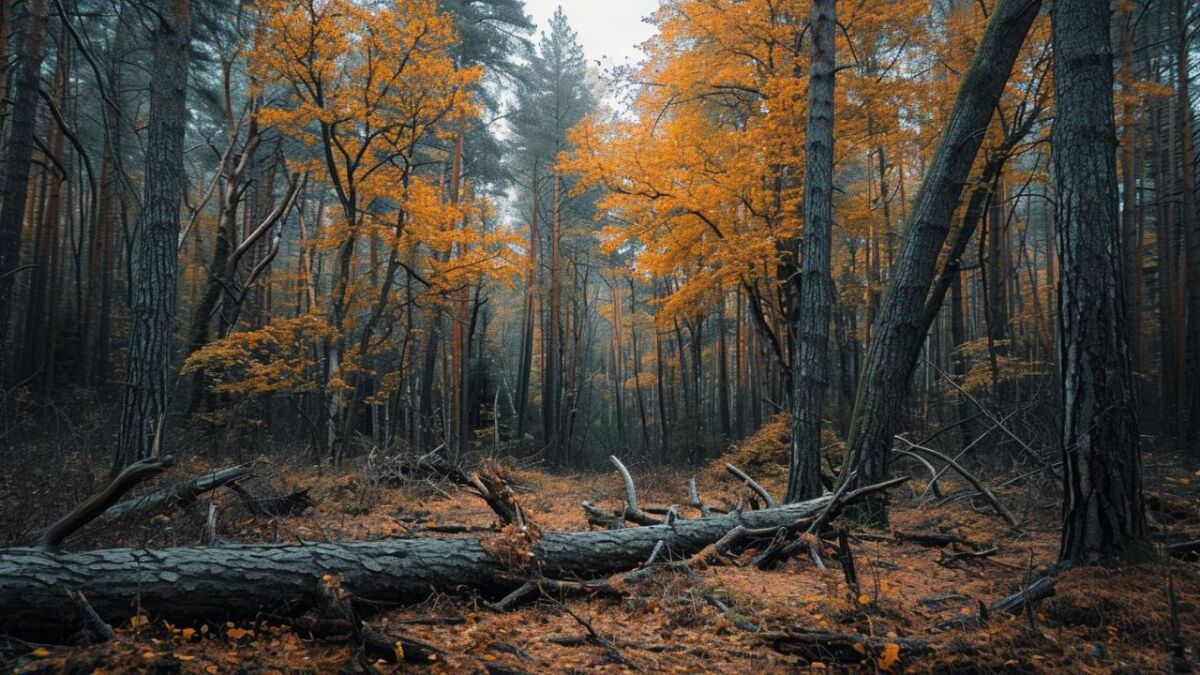
My tips for unknown forests:
- If you have doubts, turn back: This is not a sign of weakness, but of wisdom.
- Inform yourself beforehand: Maps are your friend. I study them before entering new areas.
- Follow marked paths: They are usually safer and you will find your way out of the forest faster.
The forest is a friend, but also a teacher of the hard school. Be attentive, be mindful.
Open the book of nature and learn from every page you turn. Only then will you understand its secrets and walk your paths confidently.
When the smartphone becomes a nature guide: How to use weather apps correctly
Lean back for a moment and imagine: You are in the forest, surrounded by a network of branches - and suddenly a storm is approaching. Don't worry, a well-chosen weather app has always been a blessing.
Predictions put to the test
I have made it a habit to compare the predictions of my favorite weather app with the actual conditions. It's like a game: forecast versus reality. Sometimes technology wins, sometimes nature does. The lesson here: Trust, but verify.
What you need to consider:
- Timeliness: Are the information fresh or from yesterday?
- Regional accuracy: Does the app really show the conditions for your forest?
- Level of detail: Does it provide wind speed, chance of rain, and more?
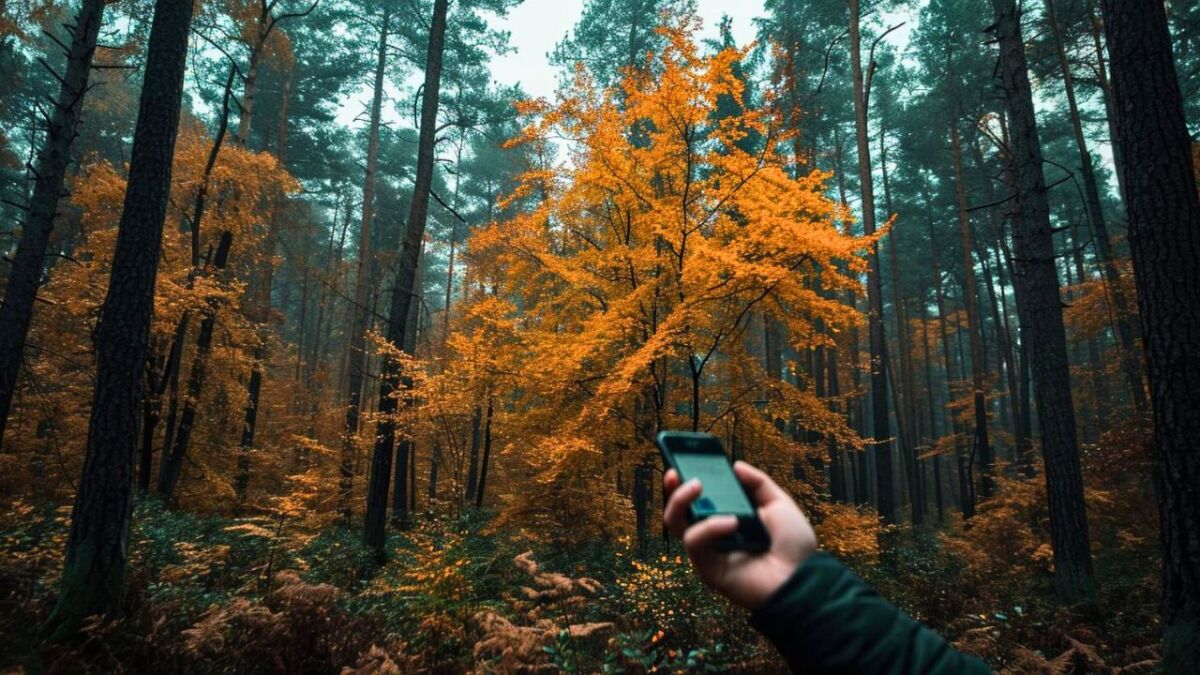
Master the weather models
Nothing beats your own intuition. But when combined with the right apps, true prediction superpowers are born.
I have already avoided rain showers with it and knew to stay at home when there were storm warnings.
Here's how you become a weather prophet:
- Practice reading nature: How do animals and plants behave?
- Compare predictions with personal observations: You will quickly notice when you can trust your intuition.
- Develop a gut feeling: Internalize the weather conditions so that you can sense what's coming even without an app.
By listening carefully to nature and using smart helpers correctly, I prepare myself for unpredictable weather.
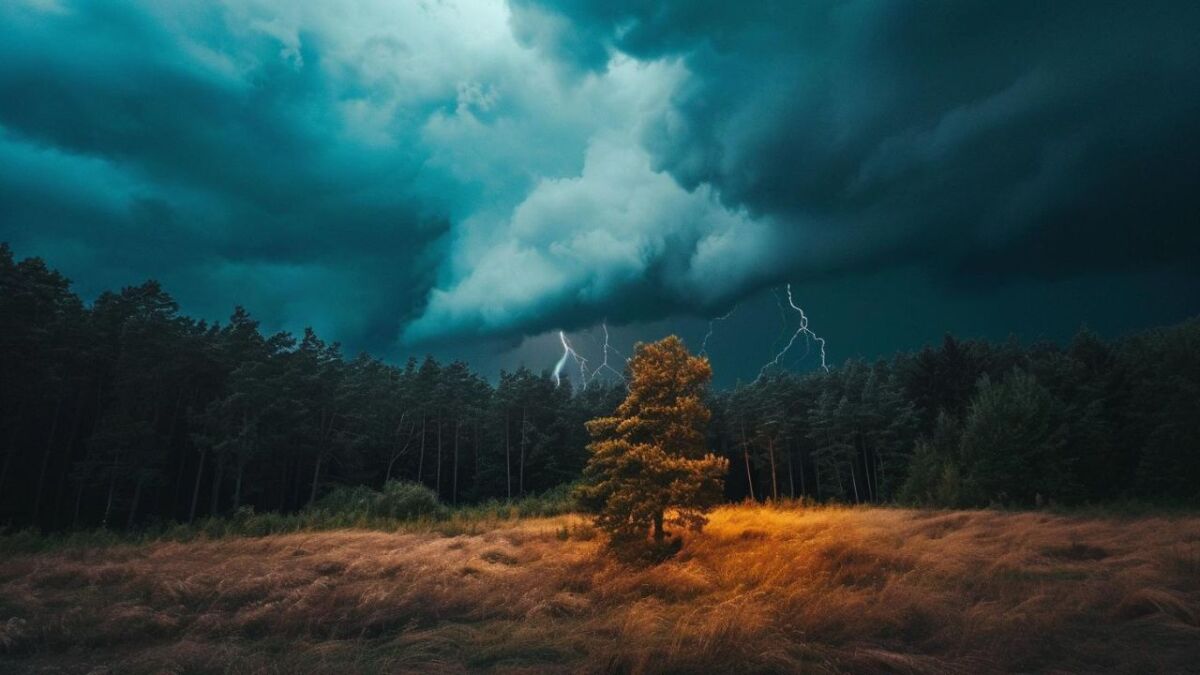
Recognizing specific dangers in the forest
The tranquility of the forest can be deceptive. Even in calm weather, it can become dangerous.
I have witnessed how drought weakens roots and causes trees to unexpectedly fall. This is especially true after a dry summer.
Caution is better than regret
The first snow and the first storm after the summer break are like a test.
The trees, perhaps weakened by heat and drought, are now facing a new challenge. I have already seen how this "stress test" brought trees down to the ground.
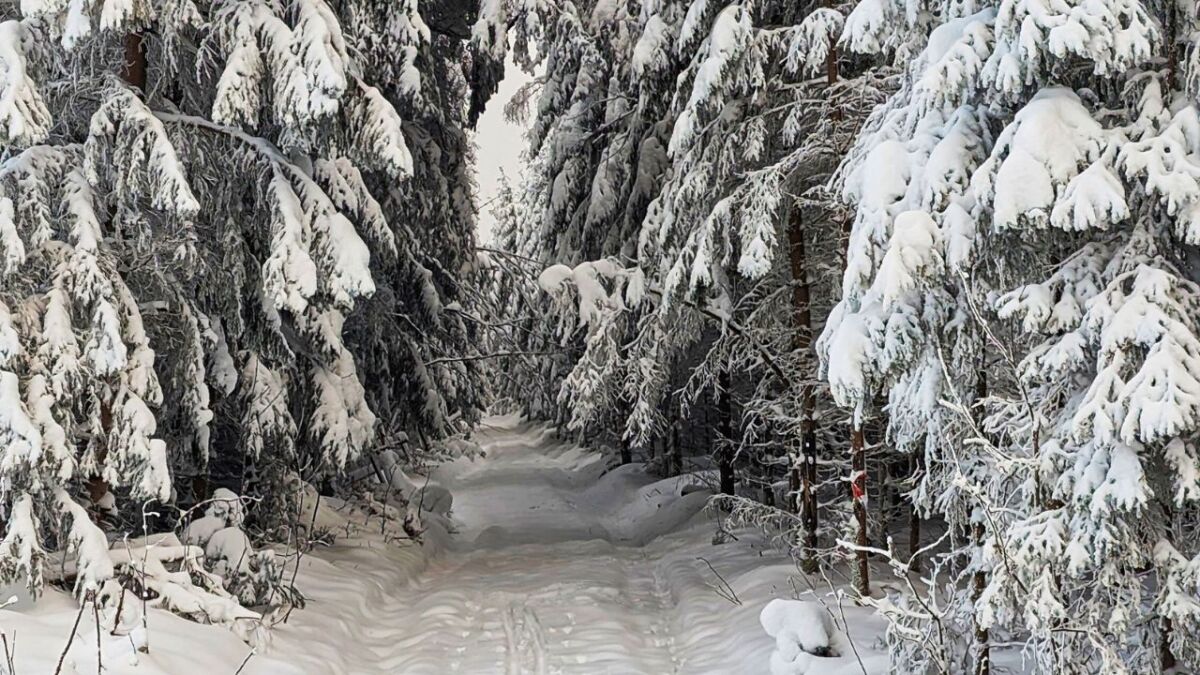
What you should keep in mind:
- Calm: Even without wind, there is a danger, especially with damaged roots.
- First snow: The winter premiere can cause heavy branches to burst.
- Storm after summer: A test for every tree - some withstand, others do not.
I have learned to treat these times with care. Instead of going into the forest, I prefer to observe from a safe distance.
When nature flexes its muscles, I approach it with respect and caution. This way, I stay safe and the forest remains my friend.
General safety instructions for forest visits
Every excursion into the wilderness carries risks, but with caution and knowledge, you can minimize them.
Think of the first snow, which is like a fresh coat of paint for the forest, but weighs heavily on the trees.
I avoid such times for hikes until nature has settled down.
The Forest and the First Snow
Nothing is more picturesque than the first snow in the forest. And yet it can be deceptive.
Who would have thought that this white wonder is also a burden for the branches?
After experiencing moments of terror when branches broke just beside me, my motto is: Safety first!
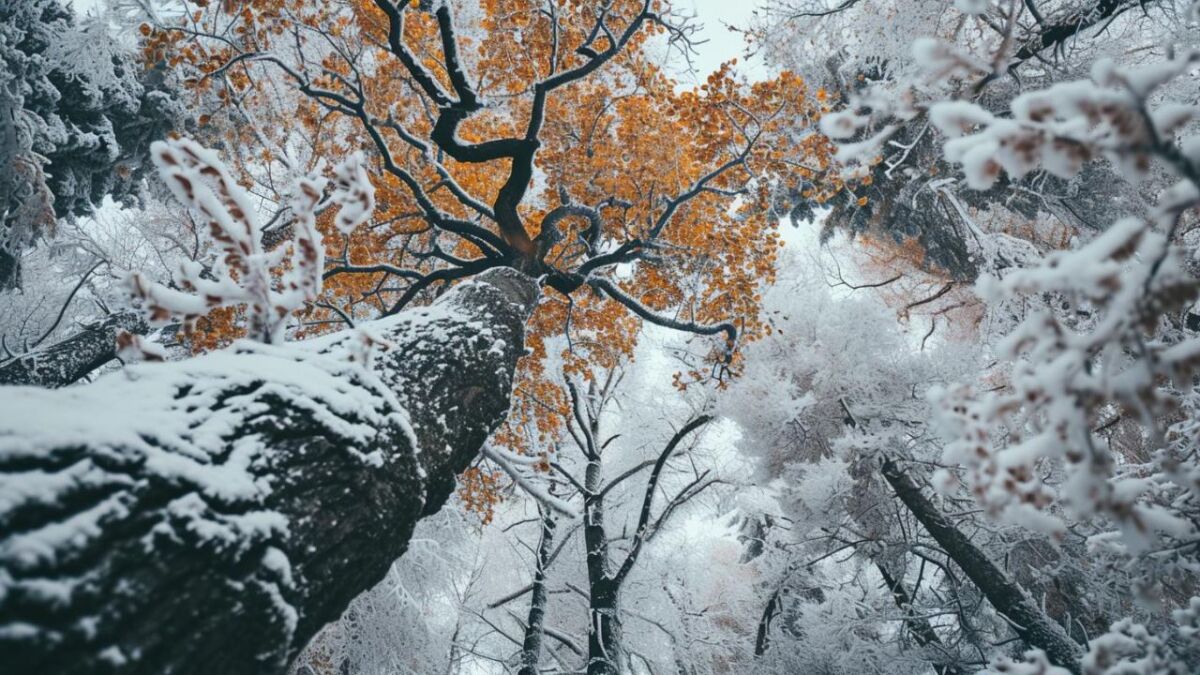
Is the forest still safe in autumn and winter?
First, let me reassure you: In the forest, compared to road traffic in Germany, there are much fewer accidents.
Compared to traffic, walks in the forest seem harmless. But even here, there are surprises lurking.
Sure, accidents on the road are more common, but the danger in the forest is silent and invisible.
I see it like this: danger is everywhere, but in the forest you can better control it with wise actions.
Equip yourself with knowledge to enjoy the magic of the forest without risk. By being mindful and proactive, you will stay safe and deepen your connection to nature.
Conclusion: Exercise caution, enjoy nature
My hiking boots have treaded many a path, my eyes have seen many weather. The wisdom of the forest is a treasure that offers protection and freedom - if one understands its language.
As a wilderness mentor, I have learned respect and I pass on this legacy to you. Go out, take a deep breath, and be part of the forest, but never without a watchful eye for the signs that the trees and the sky send you.
What is your opinion on hiking in the forest? Did the guide help you understand the dangers better and make you feel safer?
Or do you perhaps have your experiences and tips that you would like to share with us? Write them in the comments and let's learn more about the wild paths together.


Author of the guide
Martin Gebhardt
Hey, I'm Martin. On my blog, you will learn the basics and numerous details about living in the wild. I think survival, bushcraft and the good life in nature are the keys to happiness. Find me here on Instagram or on YouTube. You can find more about my mission on the About Me page.
Was this guide helpful?
25 people found this guide helpful.
5.00 out of 5 points (25 Ratings)
Comments (0)
This post may contain affiliate links. So if you click on the links and make a purchase, I will receive a small commission at no additional cost to you. Click here, to learn more about it.


